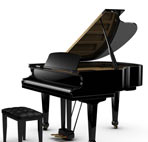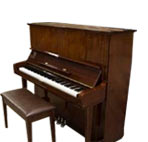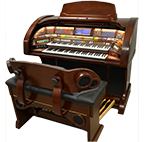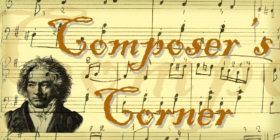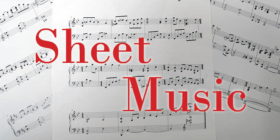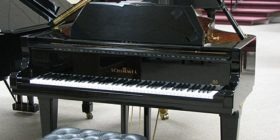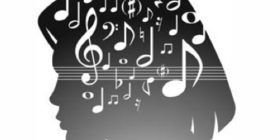As Fall approaches and our lives begin to march in step with the regularity of school schedules, setting aside some extra time for learning music is a very positive way to add something important to your child’s life.
In school, music offers a chance to be part of a group that is working to accomplish something to the best of its ability. It is very much like a sports team except that everyone who wants to play gets to be on the team. Students in musical groups such as choir, band and orchestra generally have good grades and developed social skills, as well as a large network of close friends as they progress to middle school, high school and beyond.
Most public and private schools offer general music classes as part of the regular curriculum. These classes are usually designed to stimulate a child’s interest in music as well as to lay a foundation of musical fundamentals which will make other musical activities easier to learn. In most schools, general music classes meet once or twice a week, enough to lay a foundation which should enable most students to begin playing an instrument or sing in tune.
If a school system has a band or orchestra program, it usually starts around the fourth, fifth or sixth grades. Music teachers at the school have most likely made their younger students aware of these possibilities through giving concerts at school assemblies and in the music classroom. For parents, it is good to be aware of exactly what your child’s school system offers in the music curriculum up through high school, since opportunities for interested students may vary widely. For example, most school systems offer a band program of some sort, giving children the opportunity to play woodwinds, brass and percussion instruments. A smaller number also offer orchestra classes in which children can learn to play the violin, viola, cello and bass. An increasing number of schools are offering one or more jazz bands at the middle and high school levels, and many young musicians become very motivated to perform in this distinctly American style of music which uses rich harmonies and fosters creative improvisation. Basic guitar classes are also being added to the general music curriculum as well.
Musical activities at school provide students with wonderful learning opportunities with professional teachers, but the class settings often cannot address each student’s individual needs. That is where private lessons can make a significant difference. Students who study privately with a qualified and experienced teacher usually spend more time with their instruments and develop many aspects of their musicianship to a higher degree than those who do not. In a private lesson, the teacher can focus totally on the student’s performance and teach precisely to that particular student’s needs in terms of technique, tone, and reading skills as well as phrasing and interpretation. Private teachers usually help their students with their school band or orchestra music assignments, and also give the students different music to read and study. Studying privately usually gives students opportunities not available in public schools, such as the opportunity to perform solo recitals and participate in judged events such as the annual National Federation of Music Clubs Festival and Piano Guild auditions.


